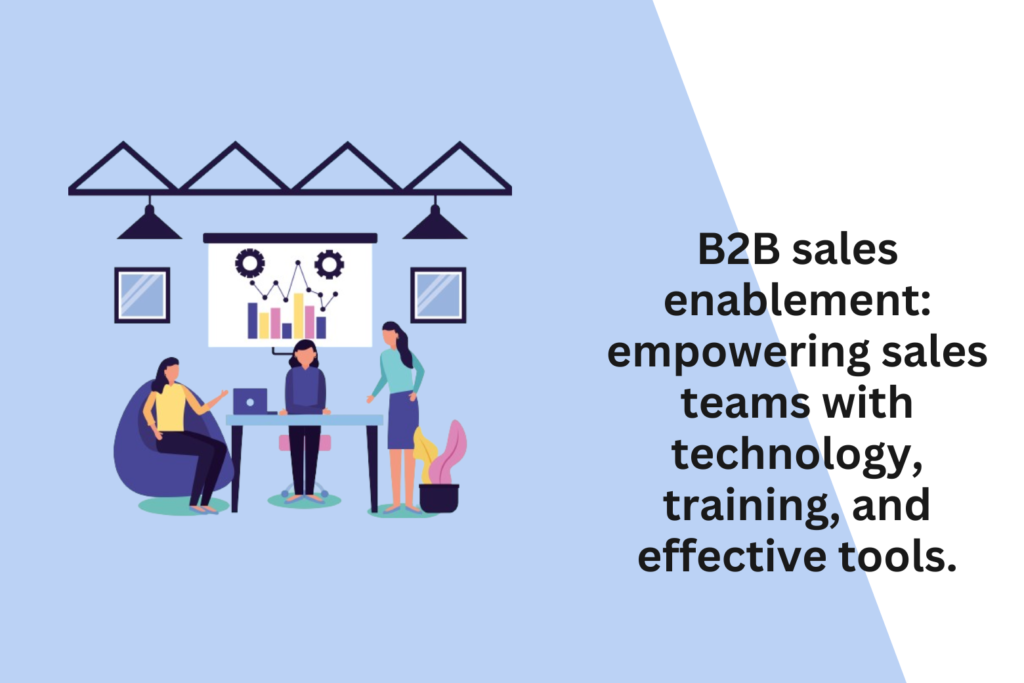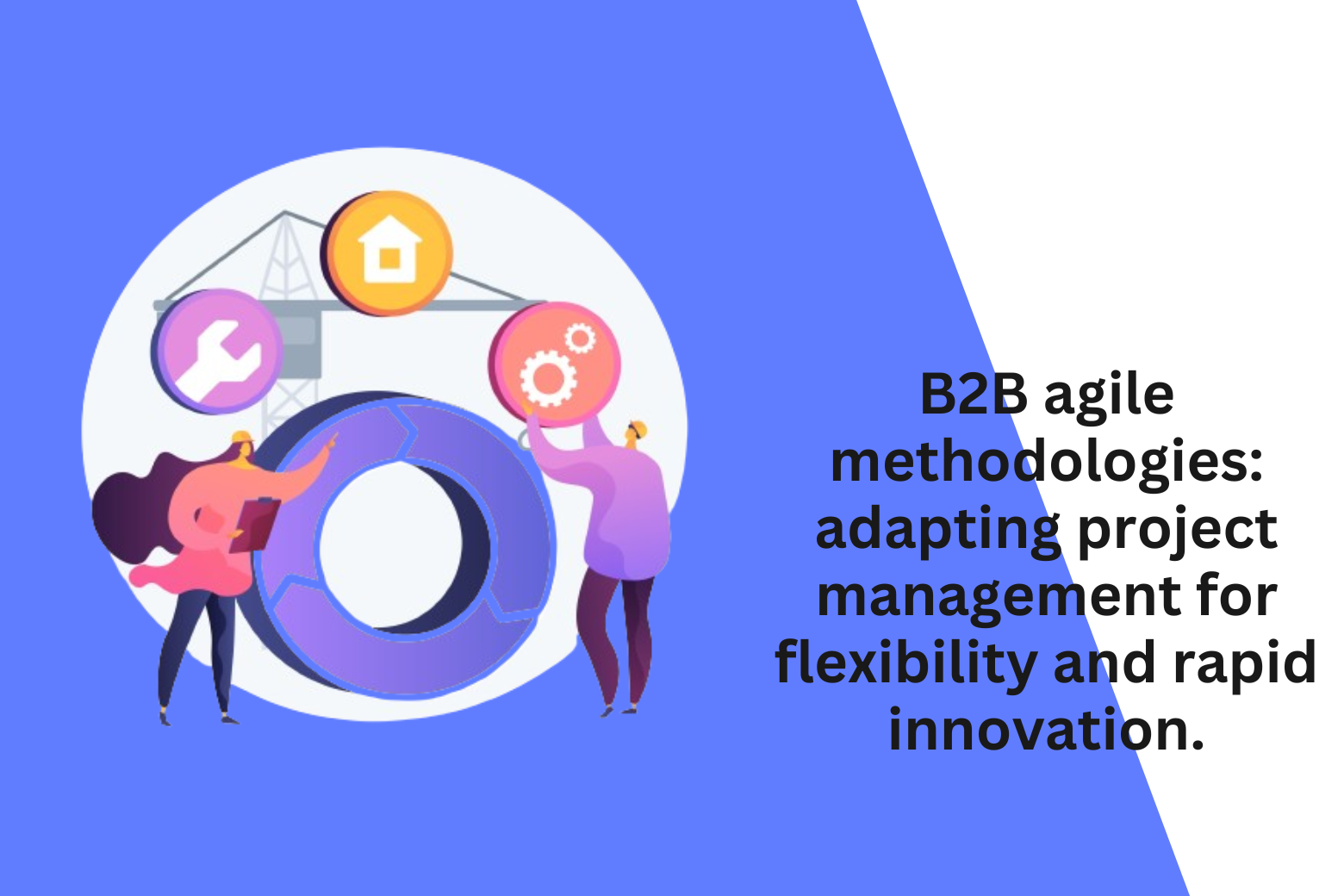
B2B sales enablement involves empowering sales teams with the right technology, training, and tools to enhance their effectiveness and productivity. Here’s an exploration of key elements in B2B sales enablement:
1. Technology Empowerment:
Customer Relationship Management (CRM) Systems:
- Opportunity: Implement a robust CRM system to centralize customer data, track interactions, and provide insights that help sales teams understand customer needs.
- Challenge: Ensuring proper integration with other tools and maintaining data accuracy within the CRM.
Sales Automation Tools:
- Opportunity: Utilize sales automation tools for tasks such as email outreach, lead scoring, and follow-up reminders to streamline repetitive processes.
- Challenge: Striking a balance between automation and personalization to avoid appearing overly robotic in customer interactions.
AI-Powered Sales Analytics:
- Opportunity: Leverage AI-powered analytics to gain insights into customer behavior, predict sales trends, and identify areas for improvement in the sales process.
- Challenge: Ensuring that sales teams understand and trust the insights generated by AI algorithms.
Mobile Sales Apps:
- Opportunity: Equip sales teams with mobile apps that allow them to access key information, update records, and communicate with clients while on the go.
- Challenge: Ensuring data security and user-friendly interfaces for mobile applications.
Virtual Sales Platforms:
- Opportunity: Embrace virtual sales platforms for conducting online meetings, product demos, and presentations, facilitating remote collaboration with clients.
- Challenge: Overcoming potential technology barriers and ensuring a seamless virtual experience for both sales teams and clients.
2. Training Initiatives:
Product and Industry Training:
- Opportunity: Provide comprehensive training on products and industry trends to ensure sales teams possess in-depth knowledge that enables effective customer conversations.
- Challenge: Keeping training materials up-to-date in a rapidly evolving business landscape.
Sales Process Training:
- Opportunity: Train sales teams on the company’s sales process, including prospecting, qualifying leads, objection handling, and closing techniques.
- Challenge: Ensuring consistent adherence to the sales process across diverse sales teams.
Soft Skills Development:
- Opportunity: Offer training on soft skills such as communication, active listening, and empathy to enhance relationship-building and customer interactions.
- Challenge: Tailoring soft skills training to address the unique needs of individual sales representatives.
Continuous Learning Programs:
- Opportunity: Implement ongoing learning programs that keep sales teams informed about industry changes, new products, and evolving customer preferences.
- Challenge: Motivating sales teams to engage in continuous learning and making resources easily accessible.
3. Effective Sales Tools:
Sales Playbooks:
- Opportunity: Develop sales playbooks that provide guidance on handling different scenarios, objections, and customer personas, ensuring consistency in sales approaches.
- Challenge: Regularly updating playbooks to align with changing market dynamics.
Content Management Systems:
- Opportunity: Implement content management systems that organize and centralize sales collateral, ensuring that sales teams have easy access to up-to-date materials.
- Challenge: Maintaining content relevance and ensuring proper version control.
Sales Performance Dashboards:
- Opportunity: Provide sales teams with performance dashboards that offer real-time insights into key metrics, allowing them to track progress and identify areas for improvement.
- Challenge: Balancing the depth of information with simplicity to ensure dashboards are actionable.
Collaboration Tools:
- Opportunity: Foster collaboration among sales teams by implementing tools that facilitate communication, document sharing, and collective problem-solving.
- Challenge: Ensuring that collaboration tools integrate seamlessly with other sales enablement technologies.
Conclusion:
B2B sales enablement is a multifaceted approach that combines technology, training, and effective tools to empower sales teams. By investing in the right resources and creating a culture of continuous learning and improvement, organizations can position their sales teams for success in a competitive business landscape. Regular assessments, feedback loops, and adaptability are essential to ensure that sales enablement strategies remain aligned with evolving customer needs and market dynamics.



